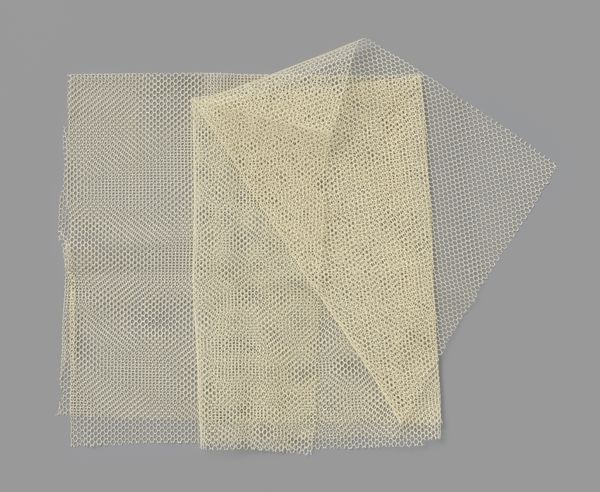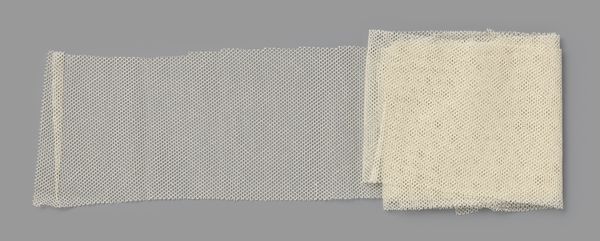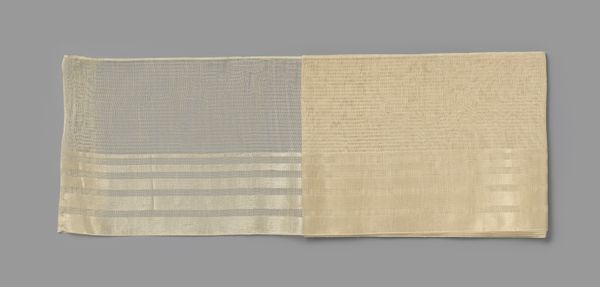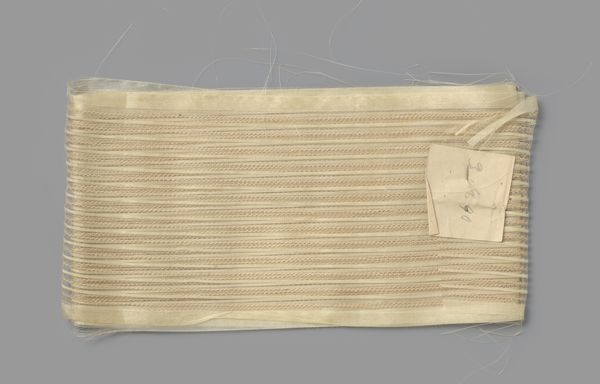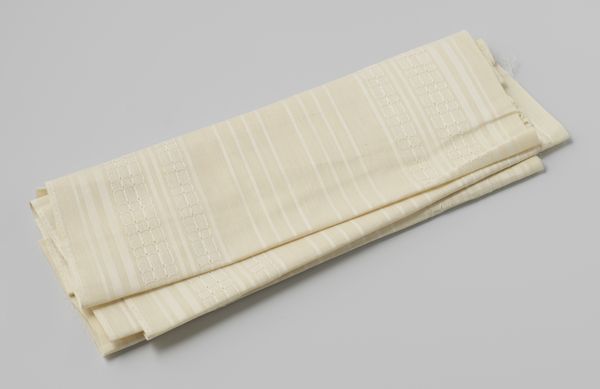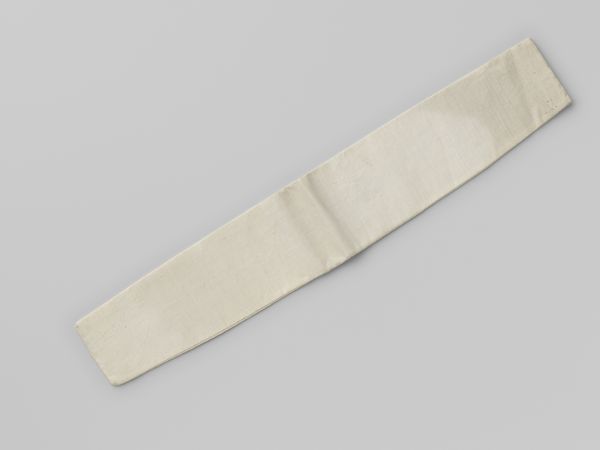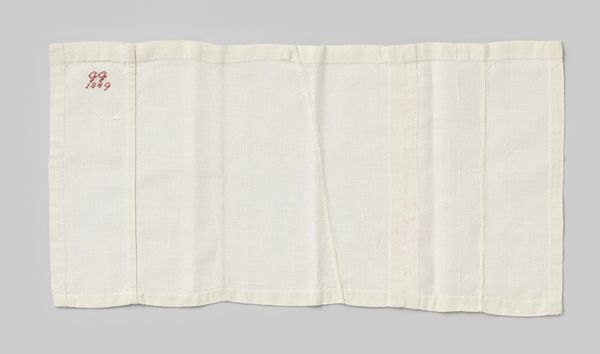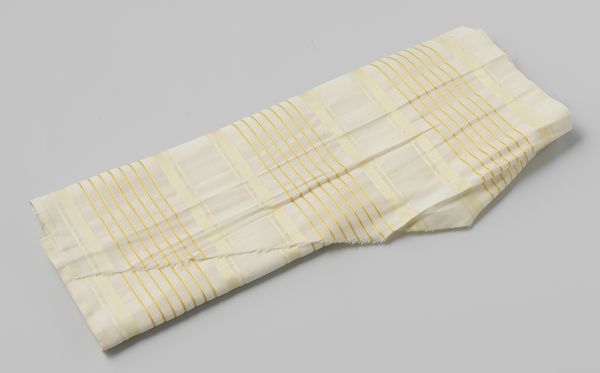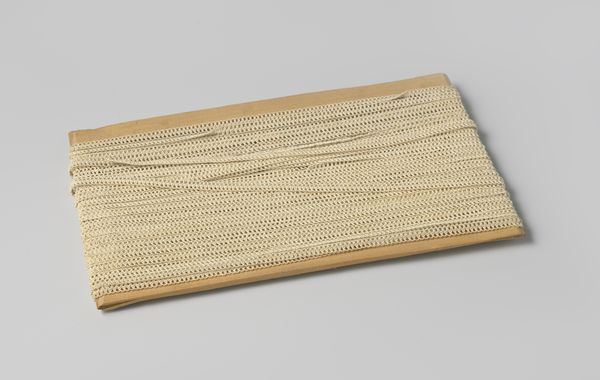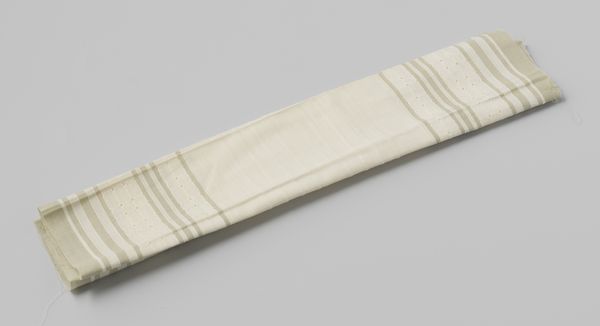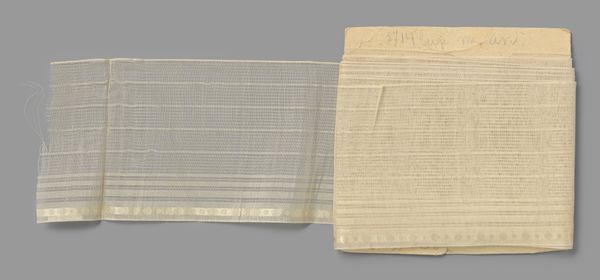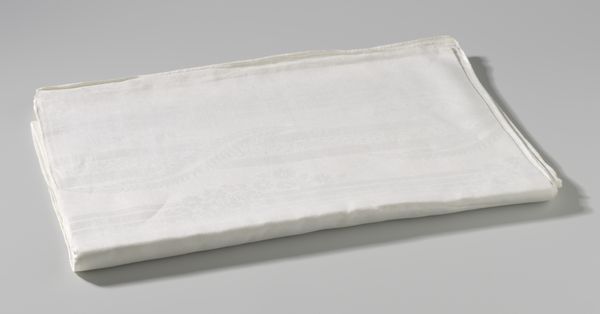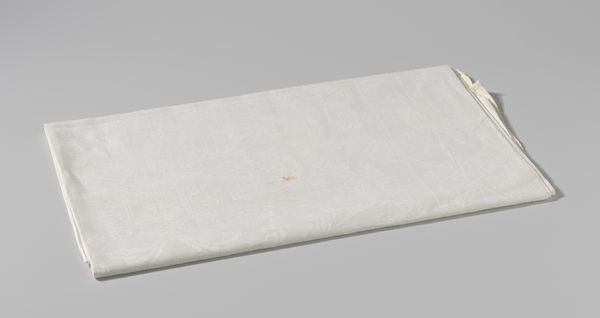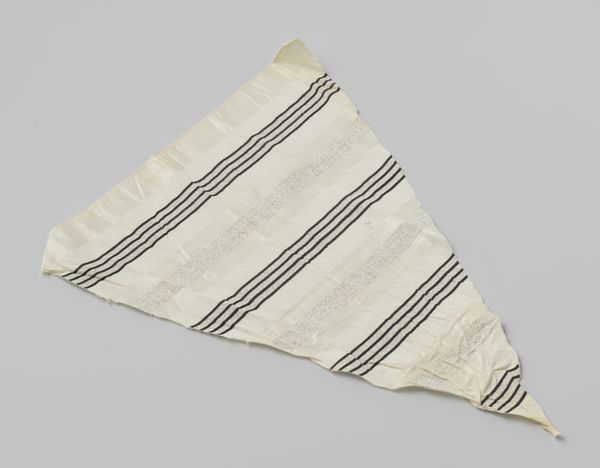
textile
#
fashion design
#
fashion mockup
#
arts-&-crafts-movement
#
textile
#
fashion and textile design
#
fashion based
#
wearable design
#
fabric design
#
clothing photo
#
fashion sketch
#
imprinted textile
#
clothing design
Dimensions: width 20.5 cm, length 29 cm, height 2 cm
Copyright: Rijks Museum: Open Domain
Editor: This is a cream-white fragment of coarse cotton tulle, dating back to around 1900. It's so simple, almost austere. What strikes me most is the sheer ordinariness of it, like something you'd find tucked away in an attic. What do you see in it? Curator: It’s easy to overlook something like this. But textiles like this weren't just material, they were deeply connected to labour, class, and even gender roles in the early 20th century. Who would have been making this kind of tulle? For what purpose? Was it destined for the elite, or would it be available to all? Editor: That makes me think about the conditions in factories at the time. Were textiles like this made in factories, or at home? Curator: Exactly! The rise of industrial production transformed textile manufacturing, but also heavily exploited female labour. Looking at the "Arts and Crafts" movement tag, we can consider whether this textile could have been a form of subtle protest. Was it handmade in defiance of factory production? Or perhaps even subversive in its use – challenging accepted fashions of the period? What impact did new weaving techniques have on consumers? Editor: It’s amazing to think that such a seemingly plain piece of fabric could hold so much social history. I would never have thought of it as anything more than just a piece of cloth. Curator: It is through this lens that art pieces gain a stronger political relevance in today's conversations on fair trade and ethical production. It makes you wonder about the stories embedded within the threads themselves. What questions would you now want to ask about it? Editor: Definitely! Thank you. Next time I see a piece of old fabric, I’ll consider where it came from and who made it!
Comments
No comments
Be the first to comment and join the conversation on the ultimate creative platform.
